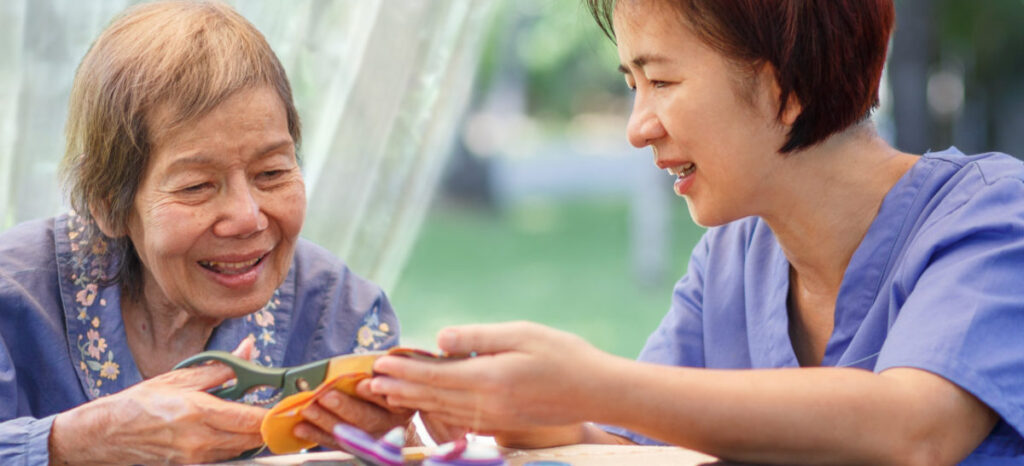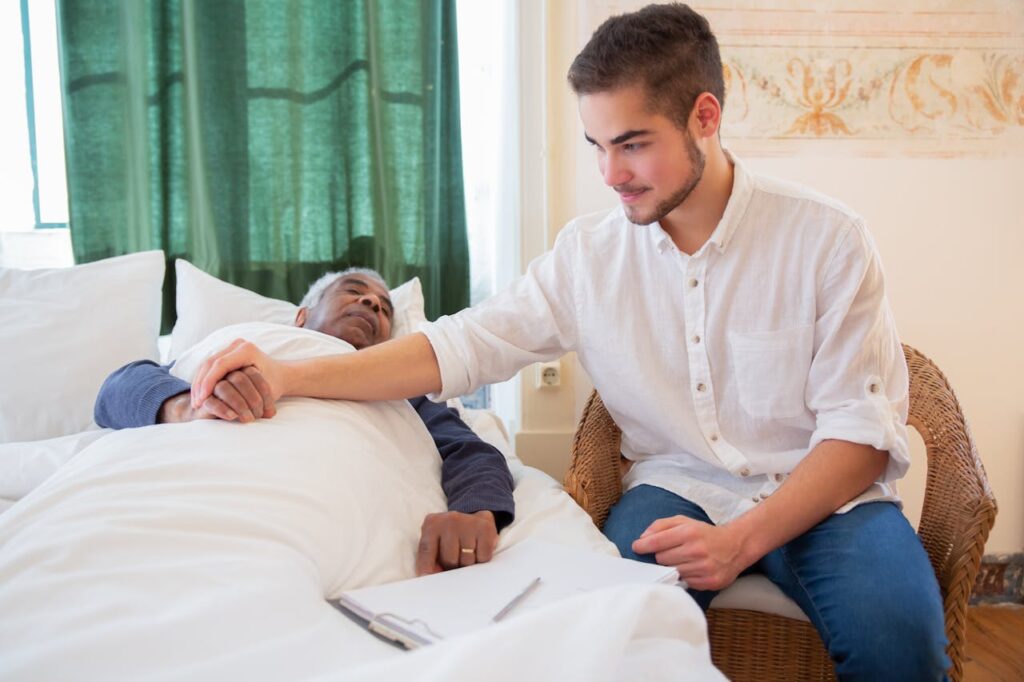Learning New Skills – How Home Health Care Professionals Empower Patients
In life, there is always room to learn and grow, regardless of age or health condition. For individuals receiving home health care services, the opportunity to learn new skills plays an essential role in their recovery and overall well-being. Devoted Helpers in Sugar Land, Texas, understands that learning new skills—whether it’s relearning how to perform daily tasks after an illness or mastering exercises for mobility—can significantly improve a patient’s independence and quality of life.
In this article, we will explore how physical, emotional, and cognitive skills can be learned and enhanced through home health care services. We’ll also discuss how home health care providers play a pivotal role in teaching patients new skills and fostering personal growth.
Physical Skills – Restoring Independence
One of the most important aspects of learning new skills is regaining physical abilities that may have been affected by injury, surgery, or illness. Physical therapy is a key component of this process. Some examples of physical skills patients may learn include…
-
Regaining Mobility – Physical therapists help patients relearn how to walk, climb stairs, and perform basic movements after an injury or surgery. They design exercises that improve strength, flexibility, and coordination, helping patients regain their ability to move freely.
-
Pain Management – Patients may learn techniques to manage chronic pain, such as stretching, deep breathing, or using hot/cold therapy. These skills empower patients to cope with discomfort and improve their quality of life without relying solely on medication.
-
Balance and Fall Prevention – Physical therapists often teach patients balance exercises to prevent falls, a significant concern for older adults or those recovering from injuries. Learning how to improve balance is key to preventing accidents and achieving greater independence.
-
Posture and Body Mechanics – Occupational therapists and physical therapists work with patients to teach proper body mechanics and posture to reduce strain and prevent injury during everyday activities such as lifting, bending, or sitting.
Cognitive Skills – Enhancing Mental Acuity
In physical skills, home health care professionals also support patients in learning cognitive skills that improve mental function and overall well-being. This is especially beneficial for patients with conditions like dementia, stroke recovery, or brain injuries. Cognitive skills can include…
-
Memory and Focus – Occupational therapists and speech therapists work with patients to develop memory exercises and techniques to improve focus and cognitive processing. These exercises may involve using memory aids, recalling names and dates, and practicing problem-solving tasks.
-
Cognitive-Behavioral Strategies – Patients may learn strategies to manage cognitive disorders such as anxiety, depression, or confusion. Therapists teach patients to recognize negative thought patterns and develop healthier ways of thinking and responding to challenges.
-
Mental Stimulation – Simple activities like puzzles, reading, or games can help patients stimulate cognitive function. These activities may be integrated into daily routines to improve mental sharpness and encourage learning.
-
Communication Skills – For patients recovering from a stroke or speech-related issues, speech therapists teach new techniques for improving communication, including articulation, volume control, and effective use of gestures or assistive devices like speech-generating devices.
Emotional and Psychological Skills – Coping and Building Resilience
Learning new emotional skills can significantly impact a patient’s mental health and overall outlook on life, especially when they are facing significant health challenges. Home health care providers offer valuable emotional and psychological support by helping patients develop coping skills, including…
-
Coping with Chronic Illness – Patients who are living with chronic illness may learn ways to cope with the emotional and psychological challenges that come with their condition. This can include techniques for managing stress, anxiety, and feelings of isolation.
-
Building Resilience – Home health care professionals help patients build resilience, which allows them to face challenges with a positive attitude and overcome setbacks. Whether it’s recovering from surgery, adjusting to a new diagnosis, or dealing with pain, resilience is key to navigating life’s obstacles.
-
Mindfulness and Relaxation – Learning mindfulness techniques, such as deep breathing or meditation, helps patients relax and stay calm in stressful situations. These techniques are especially helpful for managing pain, anxiety, or depression.
-
Social Interaction Skills – For individuals who feel isolated due to health conditions, home health care professionals encourage patients to reconnect with others, either through social media, phone calls, or community involvement. These skills help patients build emotional support networks.
Daily Living Skills – Promoting Independence
A key goal of home health care is to help patients regain independence in daily living activities. Learning to perform daily tasks on one’s own is empowering and fosters a sense of autonomy. Home health aides and occupational therapists often teach the following skills…
-
Personal Care and Hygiene – Occupational therapists work with patients to help them learn how to bathe, dress, groom, and take care of their hygiene independently. They may recommend adaptive equipment such as grab bars or dressing aids to make these tasks easier.
-
Meal Preparation – Home health aides or nutritionists teach patients how to prepare meals that are healthy, safe, and suited to their dietary needs. They may demonstrate cooking techniques or guide patients in making nutritious meal choices.
-
Managing Household Tasks – Home health aides assist patients in learning how to manage household chores, such as cleaning, laundry, and organizing, to maintain a comfortable living space. They may also offer recommendations for modifying the home to make tasks safer and easier.
-
Financial and Medication Management – Health care providers may help patients manage finances or medication schedules, teaching them how to use tools like medication planners or apps to keep track of their prescriptions.
Social and Recreational Skills: Enhancing Life Satisfaction
Home health care professionals also help patients regain the ability to enjoy life through social and recreational activities. This is especially important for individuals who are recovering from significant health challenges or living with chronic conditions. These skills can include…
-
Social Skills – Patients may be encouraged to engage in social activities, fostering meaningful relationships with family and friends. This can reduce feelings of loneliness and increase emotional well-being.
-
Hobbies and Leisure Activities – Health care providers often suggest hobbies or activities that can engage the mind and body, such as gardening, painting, or reading. These activities promote a sense of accomplishment and provide emotional fulfillment.
-
Exercise and Outdoor Activities – Physical activity can be a fun and rewarding way to regain strength and mobility. Whether it’s walking, swimming, or practicing yoga, engaging in recreational exercise helps promote physical and emotional health.
Empowering Patients Through Learning
Learning new skills is a vital part of the home health care process. At Devoted Helpers in Sugar Land, Texas, we believe that empowering our patients to learn and grow, regardless of their health status, is key to enhancing their independence and overall quality of life. Whether it’s physical rehabilitation, cognitive improvement, or emotional resilience, our dedicated team works closely with each patient to provide the necessary support, education, and guidance.
If you or a loved one could benefit from learning new skills to improve your health and well-being, contact Devoted Helpers to learn how our home health care services can help you regain independence and live a fulfilling life.


